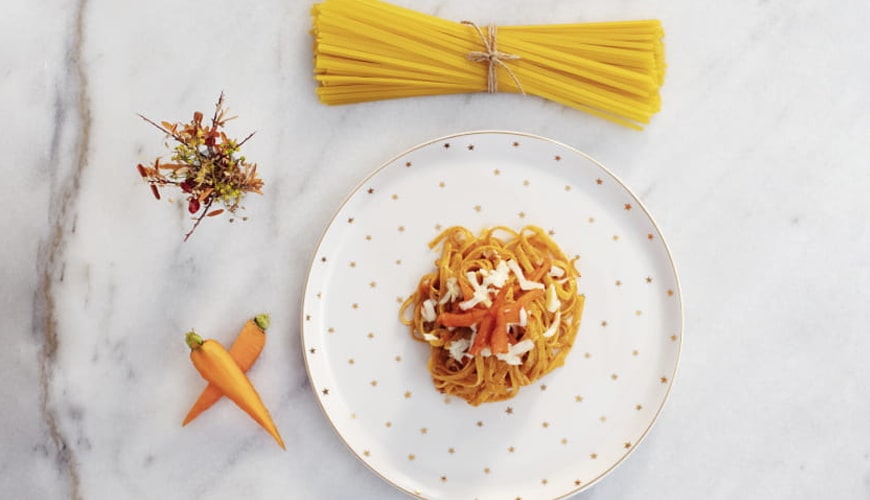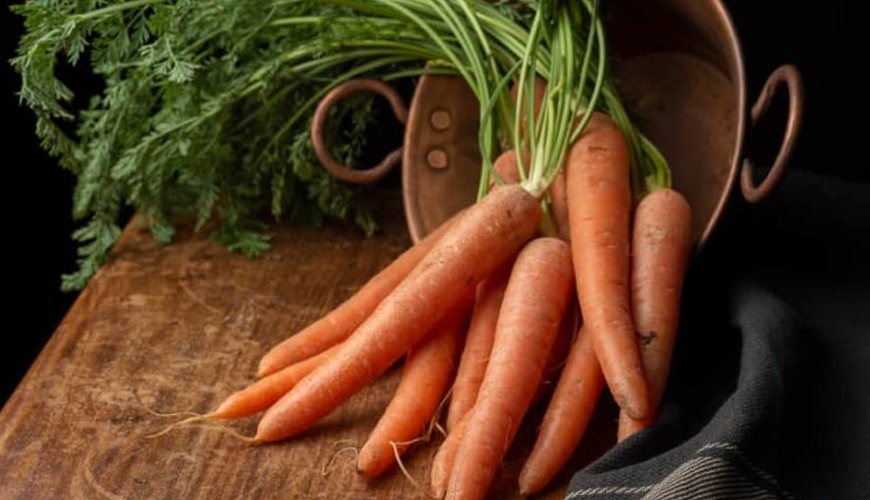Therefore, you need to consult to a pediatrician and find out the source of this in-appetence. Second thing you need to do is to consult a nutritionist and dietitian. If every thing is normal and the only reason for the in-appetence of your children is eating behaviours and habits, below given suggesstions will help you overcome this problem.
- First of all, are they not careful abou their eating times? Do not insist. Never try to make them eat by forcing them to open their mouth, diverging the attention from the food or chasing after them while they are watching tv or playing on the computer. Ensure that they have a healthy relationship with food. Do not cause the rejection of food by insisting.
- Instead of insisting about the food they don't like, try to inspire them. For example, let's say that they don't like carrots. First of all, do not stop cooking them. When you put the carrots on the table, take them to your plate first and use expressions such as "Hmmmm, its delicious, loved it!" which signals that you enjoy eating. If they are still not eating, try to offer them the food in different forms or with different recipies.
- Before the main courses, do not leave sugary or liquids which may cause the children to lose appetite (biscuits, fruit juices, etc.), prevent them from consuming such products. Even though drinks such as fresh fruit juice, milk are healthy, frequent consumption of these products may supress appetite. Therefore, it must be ensured that the children do not consume drinks 1 hour prior to the meal and it is beneficial to allow them to consume drinks not during the meal, but after the meal. Do not forget, children having a smaller stomach, may feel full after a glass of milk.
- Adjust the portions of the meals according to the wishes of the children. For example, take a look at yours and theirs. Believe me, their stomachs are proportionally smaller than yours. Therefore, arrange portions in consideration of stomach capacity.
- Do not insist them to eat when they are extremely tired, sleepy, sick or upset.
- It is crucial to ensure trust and security for the children. Avoid blaming, humiliating and scolding about topics concerning food.
- Ensure that the attitude of the caretaker of the children is in parallel with the attitudes of other members of the family. For example, if one family member is not allowing the children to consume beverages before meals, others should support that person.
- When there is a problem between you and your spouse, do not bring it to the table. Your stress may decrease the appetite of your children by affecting their mental condition. It may cause them to run away from the table or blame themselves.
- Do not overreact to leftovers, crumbs, spilling some food or breaking something.
Today, we present you a healthy and nutritious recipe which the children who do not like vegetables will enjoy: Fettuccine with carrots. Click here to watch the preparation of this meal.
Our recipe for fettuccine with carrots is for 4 people. Preparation duration is 5 minutes and cooking duration is 25 minutes. It has a durability rating of 3 stars.
Benefits of the ingredients included in the recipe of fettuccine with carrots.
Carrots which are an important element of our recipe, is a significant beta carotene, pulp, vitamin K1 and potassium source.
- Beta carotene which is included in the structure of carrot, transforms into Vitamin A and support eye health; plays an important role in supporting the growth and immunity functions.
- Structure of the carrot rich in carotenoids, provides protection against free radical damages caused by environmental and emotional stress and cellular destruction caused by such damages.
- Carrot is one of the most beneficial foods for hypertension patients. Carrots with its structure rich in potassium, helps balance the blood pressure.
- Pectin in carrot, is rich in both soluble and insoluble fibres. Accordingly, it provides protection for intestinal health and helps balance the blood sugar.
- Filoquinon, vitamin K1 in other words, of the carrot, is used for blood coagulation and helps support the skeletal system.
One of the ingredients of our recipe is onion which provides many health benefits with its structure rich in flavonoids, alkenyl cysteine, sulphoxides (ACSO's), fructooligosaccharides, pulps, sponins, selenium, manganese and iron.
- Onion is one of the foods which support reproductive health in males.
- With its anti-inflammatory structure, it is effective in cleaning septic wounds and healing ulcers in addition of treating chronic cough.
- Onion is a vegetable which makes it easier to balance cholesterol and provides protection against cancer.
- With the fructans included in its structure, it provides prebiotic effects. Stimulates the growth of specific microorganisms (for example Bifidobacterium, Lactobacillus, etc.) in bowels. Inulin included in the onion, improves blood lipid profiles and positively contributes to intestinal flora.
- Quercetin which is a flavonoid found in onion, protects LDL cholesterol against oxidation and therefore, lowers the risk of cardiovascular diseases.
Kashar cheese which is one of the ingredients of our recipe, is quite rich in calcium.
- Kashar cheese is helps contribute to the development of skeletal system and provide protection against osteoporosis, bone loss.
- Kashar cheese with its calcium rich structure, may lower blood pressure by balancing it. Low-fat low-sodium cheese which is consumed in moderation in healthy diets, helps lower blood pressure.
- Kashar cheese plays an important role for dental healthy and new tooth growth. Some studies suggest that eating cheese increase the pH value of the dental plaque and provides protection against cavities.
- Kashar cheese possess very small amounts of lactose compared to other soft cheese. Therefore, people with lactose intolerance can consume kashar cheese without any problems.
Let's take a look at our fettuccine with carrot recipe:
| Energy and Nutrients | Quantity |
|---|---|
| Energy | 461,6 kcal |
| Carbohydrates | 49,5 g |
| Protein | 13,75 g |
| Fat | 22,8 g |
| Posa | 5 g |
| Vitamin A | 651,2 µg |
| Vitamin D | 0,25 µg |
| Vitamin E | 2 mg |
| Vitamin K | 5 µg |
| B1 Vitamini | 0,1 mg |
| Vitamin B2 | 0,15 mg |
| Niasin | 1,8 mg |
| Vitamin B5 | 0,6 mg |
| Biotin | 4,8 µg |
| Vitamin B6 | 0,27 mg |
| Folic acid | 44,9 µg |
| Vitamin B12 | 0,5 µg |
| Vitamin C | 4,75 mg |
| Sodium | 1053 mg |
| Potassium | 441,9 mg |
| Magnesium | 62,7 mg |
| Calcium | 193,9 mg |
| Phosphorus | 237,3 mg |
| Sulphur | 191,6 mg |
| Chlorine | 1593,7 mg |
| Iron | 1,45 mg |
| Zinc | 1,9 mg |
When we consume our fettuccine with carrots recipe, we consume
- 44% of our daily carbohydrate requirement,
- 12% of our daily protein requirement
- 44% of our daily fat requirement
Our recipe will be loved by children who dislike vegetables. Our recipe which includes foods from all food groups and is rich in calcium, while appealing to the appetite of your children, will contribute to their skeletal and dental health, stimulate height growth.
Fettuccine with carrots is also a delicious recipe for adults. On top of that, people with seconder lactose intolerance can consume it without problems, thanks to low lactose kashar cheese.
Dr. Tuba Gunebak
Nutrition and Dietetics Specialist

